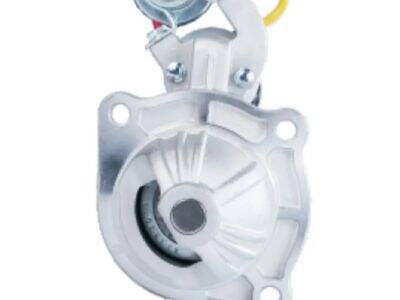While car starters and heavy duty starters may appear to be similar, upon closer inspection, they are quite different and there are some key differences that the operator should be aware of. These differences lend themselves to each type of starter being better suited for certain types of vehicles. This article serves to educate you on these differences so you will already have some understanding of how car starters and heavy duty starters work. You will also discover why they are used in particular vehicles and what purpose they serve in helping those vehicles run.
What Sets Apart The Car Starter Vs Heavy Duty Starter?
Heavy duty starters are much larger and heavier than car starters. They are designed specifically to start standard cars and trucks. Compared to larger vehicles — buses, heavy construction equipment, etc — these vehicles require relatively less power to get going. Car гарааны хөдөлгүүр are mounted near the engine and are powered by a small battery that provides just the right amount of energy to start the engine.
Conversely, heavy duty starters are substantially bigger and far more massive. They’re designed to jump-start heavy machines that feature larger engines, like tractor-trailers and heavy industrial equipment. Heavy duty starters are generally mounted further away from the engine unlike car starters. They need a larger battery or a more powerful source of electricity to run well. This particular layout allows them to process the difficult task of igniting large engines that require a significant amount of power to rotate.
How Much Do Car Starters & Heavy Duty Starters Provide?
Power delivery : One of the chief differences between car starters and heavy duty starters is the level of power they can provide to the engine. A car starter delivers about 1.4 kilowatts of power. This power level is more than sufficient to start a normal car or a small truck without issue. In contrast, heavy duty гарааны мотор can produce much more power, sometimes 5 kilowatt or more. The greater power output is required to start bigger engines with higher compression ratios that will require more energy to start moving.
What Are Car and Heavy Duty Starters Constructed From?
Starter systems for vehicles are typically crafted from lesser materials, like titanium or plastic materials. Using these materials, allows them to keep it quite compact, which aids in its engine compartment mounting. Car starters are built to be reliable and durable in everyday use in regular vehicles. They are designed for the everyday firing up of the motor and made to go the distance.
On the flip side, heavy duty starters are constructed with much more robust components such as steel and cast iron. These materials are selected for their ability to handle the increased demands of starting heavy machinery or commercial vehicles. Heavy duty автомат асаагуур also have a stronger construction, which makes them better at dealing with the stress of starting larger engines that generally do require a stronger kick to turn over.
What Makes Heavy Duty Starters More Expensive?
Heavy duty starters are generally more expensive than car starters due to their larger size and higher power output. Heavy duty starters also typically use more expensive materials. This is because they must be strong to take more force and wear over time. Car starters are less expensive to buy and can be simply swapped out if something goes wrong. When considering whether to use the car starter or the heavy duty starter, it is crucial to take into account the size and power requirements of the vehicle you are using. That should guide you in selecting the appropriate starter according to your requirements.
How Car and Heavy Duty Starters Work
In a car, starters employ a small electric motor that rotates the engine crankshaft. This helps the fuel catch fire and enables the engine to run smoothly. The car starter jumps to life and quickly starts the engine when you turn the key in the ignition. Heavy duty starters, on the other hand, utilize a greater and more powerful motor to start a bigger vehicle or machine engine. Heavy duty starters may take longer to start than car starters. That's because they have to develop more power to successfully kick off the engine, particularly larger, more compressed engines.

 EN
EN
 AR
AR
 BG
BG
 CS
CS
 DA
DA
 NL
NL
 FI
FI
 FR
FR
 DE
DE
 EL
EL
 HI
HI
 IT
IT
 JA
JA
 KO
KO
 Үгүй
Үгүй
 PL
PL
 PT
PT
 RU
RU
 ES
ES
 SV
SV
 TL
TL
 IW
IW
 ID
ID
 SR
SR
 UK
UK
 VI
VI
 HU
HU
 TH
TH
 TR
TR
 FA
FA
 MS
MS
 GA
GA
 IS
IS
 UR
UR
 BN
BN
 MN
MN
 NE
NE
 TE
TE
 KK
KK
 KY
KY
